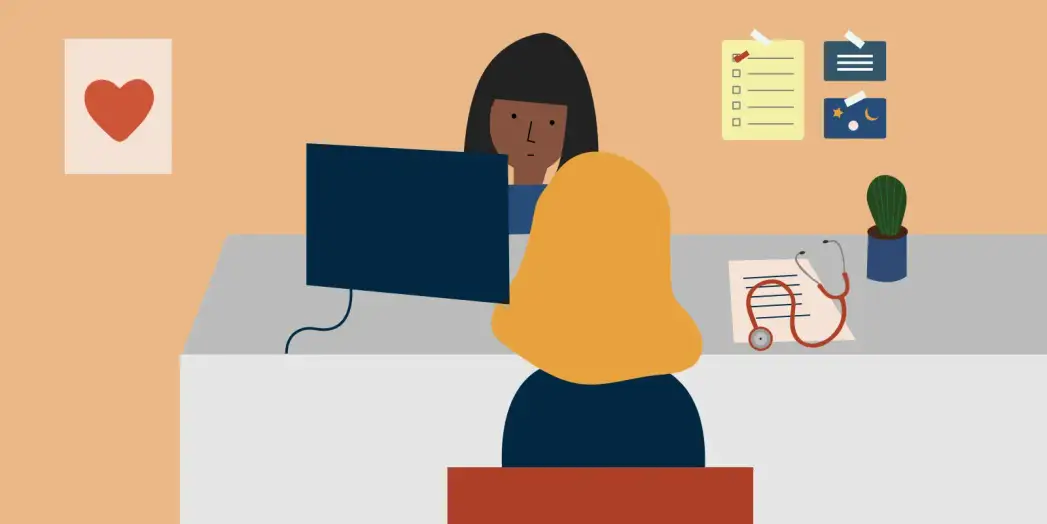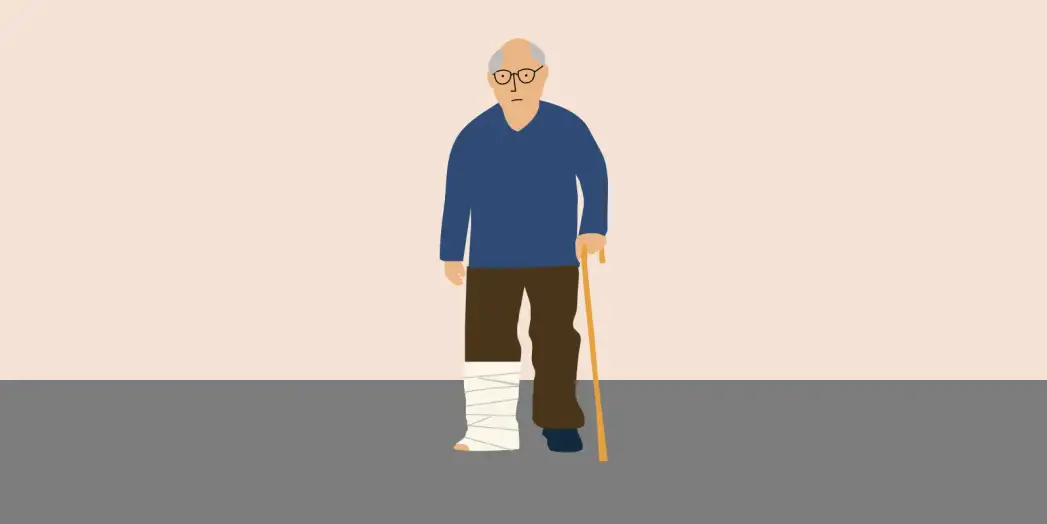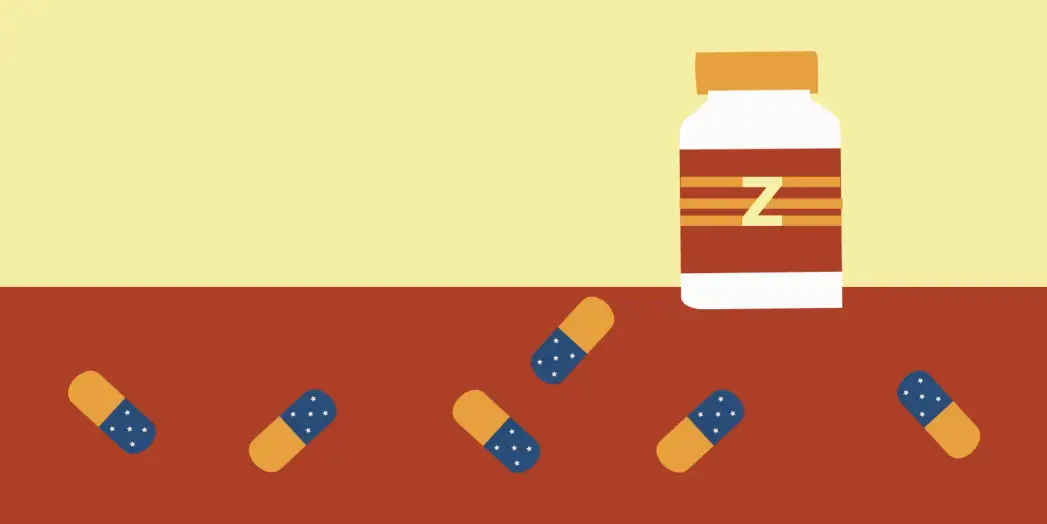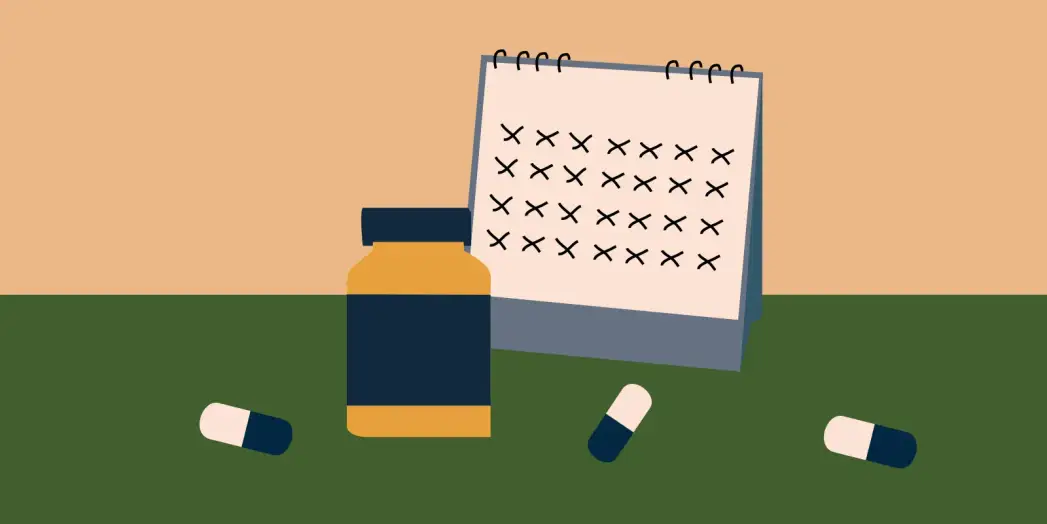Medicines for (and against) sleep: over the counter, prescribed or none of the above?
We all want to sleep well so that we’re always ready for whatever life presents us with.
Sometimes it’s hard to get to sleep, especially with all that’s going on right now. However, there are many ways to get better sleep.
While we at Sleepstation offer digital cognitive behavioural therapy for insomnia (DCBTi), which is one of the most effective first-line methods for improving sleep,1 it may not be right for everyone.
Does this mean that if DCBTi isn’t appropriate for you, you’re out of luck and doomed to a life of sleeplessness? Absolutely not.
In this introduction to a series of articles covering medicines for sleep, we’ll be exploring the main types of medicines that are used to treat insomnia and defining some of the terms you’ll come across when reading about them. We’ll also cover some medications that interfere with sleep.
But first…
When should I take medicine for sleep?
The short answer is without proper medical advice, never. Even if the substance is readily available over the counter.
Many medications which encourage sleep are extremely powerful, have a high potential for dependency and can be dangerous to the point of causing death when misused.

So, proper guidance and monitoring are key to successful treatment. Situations in which over-the-counter, or prescription-only medicines are likely to be recommended are:
- if your symptoms are acute rather than chronic (CBTi is most effective for chronic insomnia)
- you’ve had difficulty with a previous CBTi course, or your course isn’t quite getting you the sleep improvement you need.2
A reasonable way of understanding the place of medicines in improving sleep is to treat them as short term interventions.
They will usually help improve a poor sleep condition quickly but, once pharmacological treatment stops, it’s possible that the sleep problem will return unless a slower acting, longer-term treatment option (like CBTi) has been used alongside them.3
This isn’t a hard and fast rule, and in certain cases medication is appropriate in the long-term, but that depends on a person’s individual situation.
With that in mind, let’s have a look at some of the best known types of sleep medications.
Commonly prescribed medications
Benzodiazepines
Benzodiazepines are often prescribed for sleep problems and there are a variety of them that can be used for various subtypes of insomnia.2
For instance, fast-acting benzodiazepines can be used to treat sleep-onset insomnia (when a person has difficulties falling asleep once in bed), while longer acting ones can be used for those who wake up during the night but can fall asleep relatively easily.
Unfortunately, tolerance for this class of medications develops rapidly, often leading to dependency.4
Although generally safe, side-effects like ‘the benzodiazepine hangover’ are known at higher doses. This can involve waking up the following morning feeling groggy and experiencing cognitive and motor impairment throughout the day.
Benzodiazepines can also interfere with breathing in some people (slowing it down or making it shallower).
Older people treated with benzodiazepines are often at increased risk of falls and resultant injuries, so their use is not recommended in older populations.
Notable examples: alprazolam, clonazepam, diazepam, midazolam, temazepam, triazolam.

Z-drugs
These were developed as a response to the dependency potential and side-effect profile of some benzodiazepines.3 They appear to decrease the time to sleep onset and may also be less disruptive to breathing while asleep compared to the benzodiazepine class of medications.4
However, they also appear to have similar ‘hangover effects’ to the benzodiazepines insofar as those taking them:
- show cognitive impairment after awakening
- have an increased risk of fall and injury
- are at higher risk of being involved in car accidents.5
With that said, they remain an often prescribed first-line medication for insomnia due to their relatively limited side effects and low potential for dependency.
Notable examples: eszopiclone, zaleplon, zolpidem, zopiclone.

Antidepressants
Although their primary purpose is in the treatment of depression there are some antidepressants, like those in the tricyclic class, which are used to treat insomnia.
This is because they induce sleepiness as a side-effect, meaning that those who experience depressive symptoms, along with their insomnia, can benefit from the side-effect.
Other antidepressants such as some selective serotonin reuptake inhibitors (SSRIs) have a stimulant effect on people and so, as a rule, aren’t useful in the treatment of insomnia.6
The vast array of medicines in the antidepressant class means that if side-effects or the effect on sleep are unsatisfactory, many others are available.
Notable examples: amitriptyline, clomipramine, doxepin, fluoxetine, imipramine, mirtazapine.

Antipsychotics
Newer antipsychotic medications (usually called atypical antipsychotics) are often sedating in addition to reducing psychotic symptoms in those experiencing them.
Most data on the effects of antipsychotic medications on sleep relate to those exhibiting severe depression or psychotic illness (e.g. schizophrenia and bipolar disorder) and not those living with insomnia alone.4 This means it’s harder to disentangle their effect on sleep in isolation.
Antipsychotics are powerful medications and can often produce severe side effects (e.g. weight gain and restlessness) meaning that they aren’t as widely used as other medication classes.
Notable examples: aripiprazole, chlorpromazine, olanzapine, quetiapine.
Antihistamines
Often used as anti-allergy medications, there are some antihistamines that are available over the counter and can be repurposed to treat insomnia because of their ability to interact with the brain. In the UK, Nytol (aka diphenhydramine) is a good example.
With that said, self-prescribing these medications to improve sleep carries its own risk of side effects. In overdose, these can be particularly unpleasant, with cases of hallucinations and delirium being reported.
Notable examples: chlorpheniramine, diphenhydramine, hydroxyzine.

Barbiturates
No longer commonly used because of the ease and severity of overdose (they have been implicated in a number of deaths), this class of medicines were among the first readily available sleeping pills and are only now used as a ‘last resort’.
Notable examples: pentobarbital, phenobarbital.
A word on over-the-counter sleep remedies
There are a number of over-the-counter sleep remedies available but drawing distinctions between them, in the way that we’ve done for prescription medications, is a little bit harder.
In general, they have been studied less than their prescription-only counterparts5 and so it’s hard to really know if they have a strong effect on sleep one way or another.
Notable examples: 5-HTP, valerian, kava, melatonin.
Turning things on their head: What about medications that are bad for sleep?
We’ve given a brief overview of some of the medication types that encourage sleep and sleepiness. The common theme to all of these different drugs is that when taken by someone who has trouble sleeping, these medications will help them sleep.
What if they’re already taking something that is stopping them from sleeping?
This may be the case for a lot of people and so it could be a good idea for them to consider their current medication profile to see if anything can be changed or removed — preferably in conjunction with a medical professional.
Medications that may interfere with sleep
We’ve compiled a list of the most common medication subtypes that may cause sleep problems. If you’re taking any of these and are experiencing sleep issues, it’s worth discussing with your healthcare provider whether they could be causing or influencing your sleep problems.
| Medication | Uses |
|---|---|
| Anti-arrhythmics | Heart rhythm problems |
| Beta-blockers | High blood pressure, heart rhythm problems, angina |
| Chemotherapy | Cancer |
| Clonidine | High blood pressure |
| Corticosteroids | Inflammation, asthma |
| Diuretics | High blood pressure |
| Medications containing alcohol | Cough, cold and flu |
| Medications containing caffeine | Headaches and other pain |
| Nicotine replacement products | Smoking |
| Sedating antihistamines | Cold and allergy symptoms, motion sickness |
| Selective serotonin reuptake inhibitors (SSRIs) | Depression, anxiety |
| Sympathomimetic stimulants | Attention deficit disorder |
| Theophylline | Asthma |
| Thyroid hormone | Hypothyroidism |
Conclusion
There’s a lot of ways that insomnia can be treated and medications are just one of those. They will all have different therapeutic and side effect profiles and effects will vary from person to person.
In our opinion, it’s important to consult with a medical professional to determine what, if any, medication is best for your particular situation so that you have the greatest chance of the sleep benefits outweighing the risks.
Summary
- The first-line treatment for insomnia is CBT for insomnia (or CBTi).
- Sometimes it isn’t appropriate or can be made more effective by using medications.
- Many medication types exist, each with their own benefits and drawbacks.
- Because of this we can’t give general recommendations — this is best left to your doctor.
- Often, withdrawal of sleep medication will lead to a return of the original sleep problem.
With the above in mind, you probably won’t need medication in your quest to achieve a better night’s sleep.
To see if CBTi may work for you, visit Sleepstation today and take our short sleep quiz to see how we can help.
References
- Wilson S, Anderson K, Baldwin D, Dijk D-J, Espie A, Espie C, et al. British Association for Psychopharmacology consensus statement on evidence-based treatment of insomnia, parasomnias and circadian rhythm disorders: An update. J Psychopharmacol. 2019;33(8):923–47. ↩︎
- Sateia MJ, Buysse DJ, Krystal AD, Neubauer DN, Heald JL. Clinical practice guideline for the pharmacologic treatment of chronic insomnia in adults: An American Academy of Sleep Medicine clinical practice guideline. J Clin Sleep Med. 2017;13(2):307–49. ↩︎
- Riemann D, Baglioni C, Bassetti C, Bjorvatn B, Dolenc Groselj L, Ellis JG, et al. European guideline for the diagnosis and treatment of insomnia. J Sleep Res. 2017;26(6):675–700. ↩︎
- Roux FJ, Kryger MH. Medication Effects on Sleep. Clinics in Chest Medicine. 2010 Jun;31(2):397–405. ↩︎
- Lie JD, Tu KN, Shen DD, Wong BM. Pharmacological treatment of insomnia. P T. 2015;40(11):759–71.
↩︎ - Pagel JF. Medications and their effects on sleep. Prim Care. 2005;32(2):491–509 ↩︎